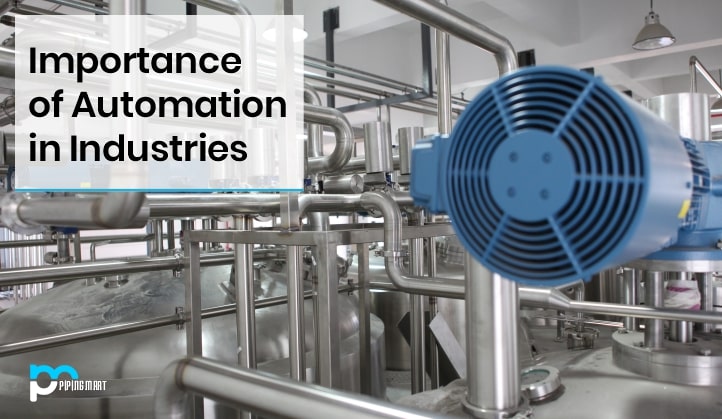Manufacturing process automation can help a company achieve high productivity and efficiency levels while increasing the quality and profitability of the product. Automated production systems require little or no human involvement. Such systems also carry out assembly, sorting, testing, or material handling operations.
Here are eight reasons why an organization would consider the integration of automation into its production process:
Increase Workplace Safety
Transferring some dangerous tasks to automated machines can make the workplace safer. Since the Occupational Safety and Health Act was signed into law in 1970, the safety and health of employees have become a priority. Automation has made the workplace safer for employees.
Reduce Labor Cost
Investing in automation can help replace manual processes and therefore reduce higher labor costs.
Increase Labor Productivity
Automated systems can more effectively perform tasks than manual operations. Automation of the production process increases the efficiency of labor and the overall rate of growth. Compared to plants using only a few automation systems, end-to-end factory automation can double or even triple production. Not only that, but equipment can often be operated with minimal effect on the maintenance outlook over longer periods.
Reduce Manual Tasks
Automation may minimize multiple operations for workers that are repetitive, exhausting, or boring. The machines will simply be left with tedious manual work. Instead, manufacturing staff can focus on the best way of improving floor efficiency, expanding the capabilities of their products, and many other engaging tasks.
Accomplish Impossible Manual Tasks
Many manufacturing operations and procedures are not feasible without machine involvement. Examples include rapid coding by graphical modeling, making complex surfaces with Programmable Logic Controllers (PLC) or numerically managed systems, and integrated circuit manufacturing. These processes have special miniaturization, accuracy, and geometry requirements that cannot be achieved manually.
Enhance Product Quality
Automation reduces the incidence of fraction defects and more consistency and uniformity are achieved in automated operations.
Avoid Higher Costs of Not Automating
Benefits from automation will lead to higher revenue, higher quality, improved productivity, better results due to higher efficiencies and a better picture of the business. Companies not implementing automation can lag behind their competitors who have chosen to automate.
Reduce Manufacturing Lead Time
Automation helps to reduce the time between the customer’s order and the delivery of the items. Compared to outsourcing or going overseas, automation can keep your process in-house, improve process control and significantly reduce lead times.
Increase system versatility
-System flexibility easily retooled and repositioned for new production programs
-Robots are flexible and can easily be redeployed in new applications
-Robots have the ability to easily switch between a wide range of products without having to completely rebuild production lines
-Quick changeover with auto grippers and vision allows for different part sizes and shapes to be part of the same run
-Mixed-flow production approach allows for flexibility in adjusting to demand fluctuations
-Robots are able to instantaneously “learn” new processes
– Reduced changeover time

Pipingmart is B2B portal specializes in industrial, metal and piping products. Also, share latest information and news related to products, materials and different types grades to help business dealing in this industry.


